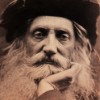It never ceases to amaze me: we all love ourselves more than other people, but care more about their opinion than our own.
Marcus Aurelius (AD 121-180) Roman emperor (161-180), Stoic philosopher
Meditations, Book 12, ch. 4 [tr. Hays (2002)]
(Source)
Alt. trans.:
- "I have often wondered how each man should love himself more than any other; and yet make less account of his own opinion concerning himself, than of the opinions of others." [tr. Foulis (1742)]
- "I have often wondered, whence it comes to pass, that although every one loves himself more than he does any other man, he should yet pay a greater regard to the opinion of other people concerning him than to his own." [tr. Graves (1792)]
- "I have often wondered how it comes to pass that everybody should love themselves best, and yet value their neighbor's opinion about themselves more than their own." [tr. Collier (rev.)]
- "I have often wondered how it is that every man loves himself more than all the rest of men, but yet sets less value on his own opinion of himself than on the opinion of others." [tr. Long (1862)]
- "How is it that every person loves themselves more than any other person, yet still gives more value to the opinions of others than the opinion they hold of themselves?" [tr. McNeill (2019)]
Quotations about:
opinion of others
Note not all quotations have been tagged, so Search may find additional quotes on this topic.
The rule which should guide us in such cases is simple and obvious enough: that the aggregate testimony of our neighbours is subject to the same conditions as the testimony of any one of them. Namely, we have no right to believe a thing true because everybody says so unless there are good grounds for believing that some one person at least has the means of knowing what is true, and is speaking the truth so far as he knows it. However many nations and generations of men are brought into the witness-box, they cannot testify to anything which they do not know. Every man who has accepted the statement from somebody else, without himself testing and verifying it, is out of court; his word is worth nothing at all. And when we get back at last to the true birth and beginning of the statement, two serious questions must be disposed of in regard to him who first made it: was he mistaken in thinking that he knew about this matter, or was he lying?
William Kingdon Clifford (1845-1879) English mathematician and philosopher
“The Ethics of Belief,” Part 2 “The Weight of Authority,” Contemporary Review (Jan 1877)
(Source)
Every new opinion, at its starting, is precisely in a minority of one. In one man’s head alone, there it dwells as yet. One man alone of the whole world believes it; there is one man against all men.
Thomas Carlyle (1795-1881) Scottish essayist and historian
Lecture (1840-05-08), “The Hero as Prophet,” Home House, Portman Square, London
(Source)
The lecture notes were collected by Carlyle into On Heroes, Hero-Worship, & the Heroic in History, Lecture 2 (1841).





